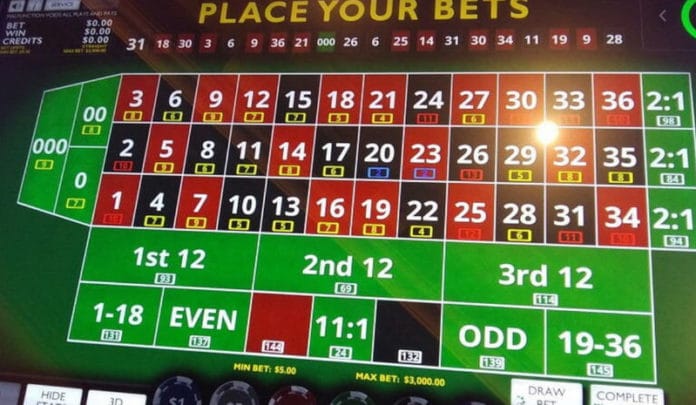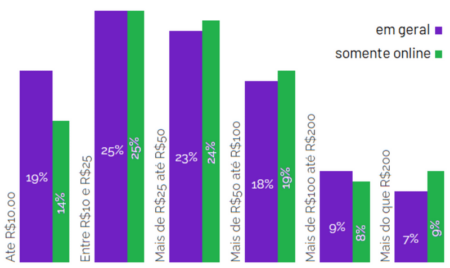Roulette is a casino game characterized by mass appeal. It’s arguably the most traditional aspect of a casino and its perceived simplicity and friendly learning curve keeps attracting new players on a consistent basis, all the way since 1796 when it was initially introduced. But with the option of opting for a digital casino experience that you can flawlessly run on a smartphone – the device you carry in your back pocket – you now have to choose between the two alternatives; the digital and the physical. Which one deserves the majority of your time?
Although the issue may be brushed off as not important enough upon the first glance, in reality, there are more than a couple of notable differences between them. If you’re in it to win it, you’d do well to keep them in mind.
So with that out of the way, let’s break it down… how does digital roulette compare to the good old physical roulette wheel that stood the test of time?
Digital roulette – the pros
One of the best things about digital roulette, the kind you’d find at a typical UK online casino, is that it allows you to experience the thrills of the game at your own pace. It makes for a nice and stress-free introduction to gambling without the etiquette-laden pressure of a brick & mortar casino.
You have all the time in the world to place your bets, learn about odds, etc. Besides, the knowledge gathered will end up being transferable to the physical variant of the game, so it’s not like you’re losing out on anything. That includes testing out any betting and bankroll management systems you may want to try out.
Speaking of etiquette, it may be standard to tip the dealers in a brick & mortar casino because part of their salary depends on it. The problem is, these are extra expenses that go out of your pocket. Over time, all of it could add up to be quite a lot, because you’re expected to tip on an hourly basis. For obvious reasons, the same is not the case with digital roulette, so more money goes to you, the player.
Moreover, all the latest trend shifts are at your disposal. In other words, if your system of playing roulette relies on taking account of the latest numbers that came out (not to be judging because we believe there is value in experimenting), digital roulette delivers on that as well. Stats-wise, however, you’d do well to remember that the previous winning number does not influence the probability of what will happen next. In other words, 10 consecutive blacks do not make it any more likely that the 11th one will also follow suit.
Also, the digital version of roulette allows you to play as many rounds per hour as you want because you can set the results to come back in an instant without having to wait in between. This allows you to use your time more efficiently without having to stare at the spinning wheel if you choose not to. So in case you come up with a system that produces winning results over the long haul, your winnings per hour also increase.
Last but not least, digital roulette tends to allow for a lower minimum bet, which can be a significant difference if you’re playing on a budget. To illustrate an example, in a brick & mortar casino, a typical minimum bet is $5. Online casinos can bring that down to $1 or less.
Honorable mention: no social elements. This one, however, is completely subjective, as some might enjoy it and some might not.
Digital roulette – the cons
In a brick & mortar casino, you’ll typically find both the European as well as the American version of roulette. In an online casino, however, it’s not a given (but doable if you’re willing to dig through their selection of games a little bit). This is important because the house edge is closer to zero in the European one. If you have a winning mentality, you’re going to want to capitalize on that to the fullest.
Although the digital presentation animates the graphical elements of the spin to emulate the real thing, it’s mostly just for show. The real result is determined by a random number generator, which is a computer algorithm. Due to this, you lose out on the real visual experience and you’re unable to use your sense of physics to predict what part of the wheel the ball will land on.
Of course, we have the obvious one – a lack of socialization that deserves to be listed as a con due to the fact that most of the population tends to view it this way. After all, we are social creatures by nature, so being able to interact with others (as opposed to a computer) is a vital part of our well-being. On the flipside, live roulette is an attempt to address the problem. And judging how popular it has become during the recent years, the public has welcomed it with open arms.
Finally, you cannot use electronic devices that are designed for beating physical roulette when playing against a computer program. An obvious con, and a substantial one at that.
Conclusion
It all depends on your unique preferences as an individual. In the end, not everyone is looking for the same things. While some may focus on the social elements and letting physics decide the outcome, others may prefer time-efficiency, small bet sizes, and the overall portability that comes with digital roulette.
Ultimately keep in mind if you’re looking to beat roulette consistency, as a job, then you’ll need to stick to roulette with a real wheel.
To get the best free roulette systems that really work, see the top 5 proven roulette systems and the video series below. It’s the best 100% free information for winning roulette you’ll find. It’s written by professionals who are really earning a living from roulette.










